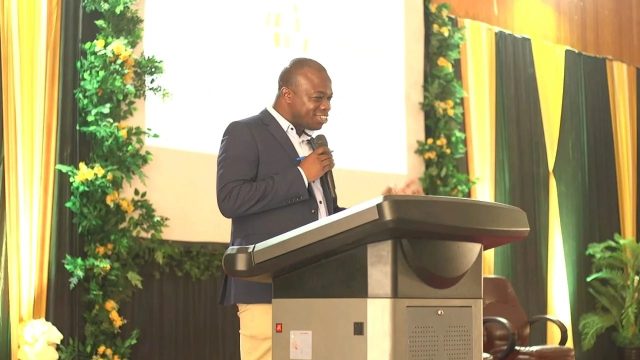By Akosua Frema Frempong and Faustina Siaw
The Dean of the Faculty of Civil and Geodetic Engineering at the Kwame Nkrumah University of Science and Technology (KNUST), Professor Kwaku Amaning Adjei, has advised female students to embrace engineering.
They should not be discouraged by the wrong perception that the field is the preserve of men. Prof. Amaning Adjei was speaking at a seminar to mark World Engineering Day in Kumasi. The theme for the celebration was “Engineering Solutions for a Sustainable World”.
The World Engineering Day for Sustainable Development was proclaimed by UNESCO at its 40th General Conference in 2019. It has been celebrated worldwide on March 4, 2020, to highlight achievements in engineering globally and how engineering and technology are central to modern life and sustainable development.
This year’s event, hosted by the Kwame Nkrumah University of Science and Technology, brought together students from second-cycle institutions, industry players, and academia.
The Dean of the Faculty of Civil and Geodetic Engineering at the university, Professor Amaning Adjei, said engineers have the power to shape the future and improve the quality of life for people around the globe.
“Embrace ethical responsibility, as engineers, you hold the power to shape the future. Always remember the ethical implications in the work and strive to create solutions that benefit all humanity. To our SHS students present, I want to extend a special invitation to you all. This is the College of Engineering if you want to do engineering, now this is the destination that you have. So I’m extending a special invitation to you all that if you are curious about the world around you, have a flair for problem-solving, and enjoy the challenge of turning ideas into reality then engineering might be the perfect part for you. To our ladies here, numerous women are practicing engineering and are engineers and so we are especially encouraging our ladies that engineers accept diversity and we are encouraging you to come into our profession,” Prof. Amaning Adjei advised.
The Director General of the Technology Consultancy Centre, TCC, UNESCO Centre of Excellence, KNUST, Professor Francis Davis, explained that his outfit is pursuing an initiative to make engineering attractive to the younger generation. This is because engineering is the backbone of technological advancement, which creates an enabling environment to address complex challenges and create a sustainable future.

“Today’s event, inspiring is a curiosity in Senior High School students manifestation of TCC’s commitment to cultivating the next generation of engineers through collaborative efforts with Ghana Institute of Engineering and Premier College of Engineering from the KNUST and our external partners. We aspire to speak curiosity, ignite passion, and set ablaze the festive for knowledge in all of us, especially our distinguished invited senior high school students. To this, I say from various SHS in the Ashanti region: Make the most of this digital technology solution innovation hub that is right here in Garden City and we want the most out of this opportunity for your future endeavours,” Prof. Davis indicated.
The Chief Operating Officer at the Ghana Commission of UNESCO, Mr. Apollonius Asare, emphasised the need for engineers to embrace innovation while championing sustainability through the provision of engineering solutions.
“Engineers in Ghana are encouraged to embrace the spirit of innovation, champion sustainability, and provide solutions to everyday problems. It is our conviction that as we push on, we will never leave our women and girls behind because they have been known to provide better solutions to engineering the challenges of women who form the larger proportion of the world’s population today. When a man decides to engineer something to solve a woman’s problem, the man does not understand the anatomy of the woman more than the woman herself. So I believe that, yes we have tried that in the past but I believe that with our women getting into engineering they can provide better solutions than what has been provided now,” Mr. Asare explained.

According to a UNESCO report, women have been historically underrepresented in the field of engineering, making up only 20 percent of the engineering workforce. Even in countries where the numbers of women studying science, technology, and innovation have increased, this trend has not translated into more women entering the workplace.
Too many female students who graduate do not go into the engineering profession. The barriers are often connected to persistent gender stereotypes in the field of engineering, inadequate policies, or educational environments that do not meet their needs and aspirations.
















